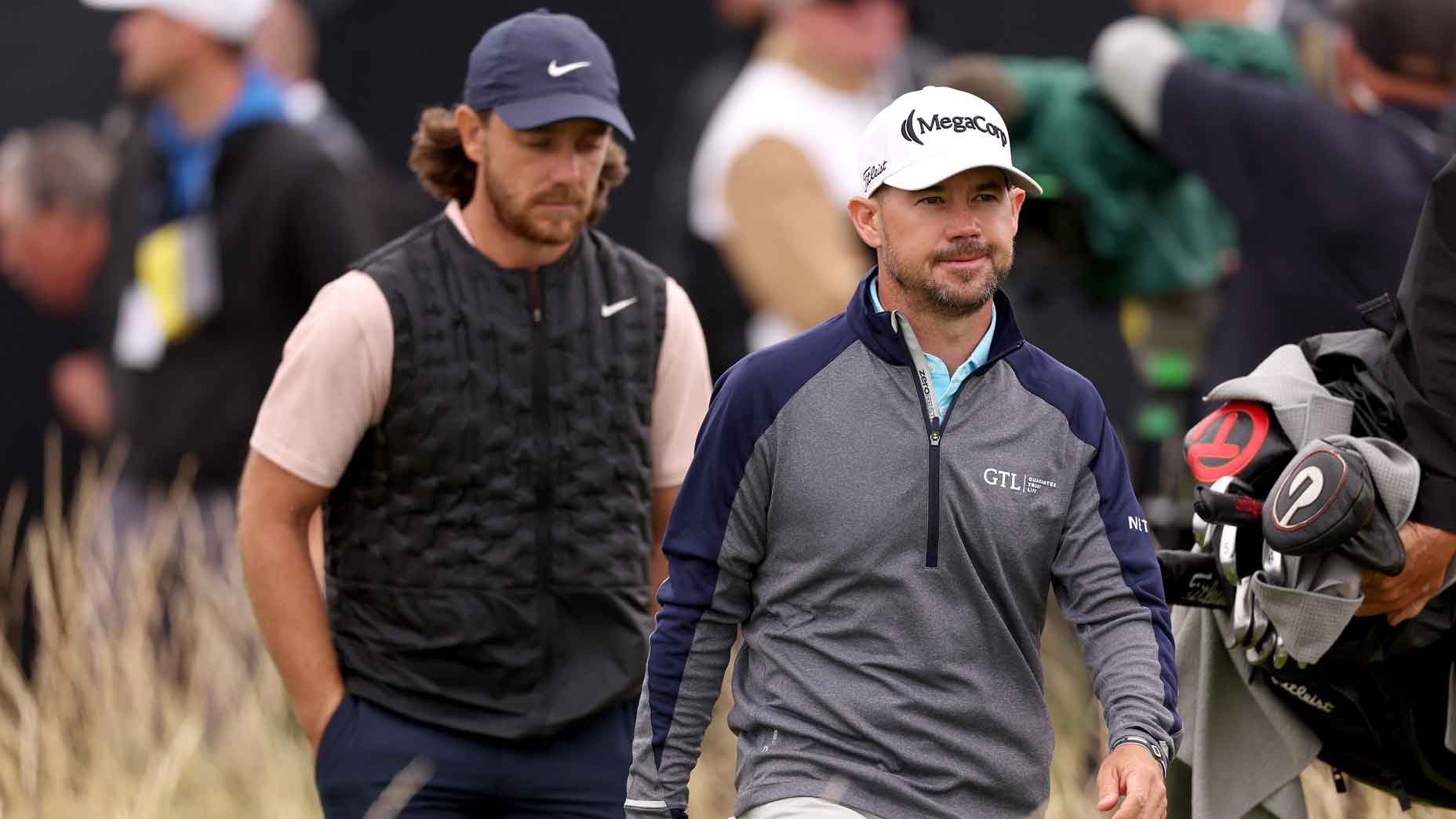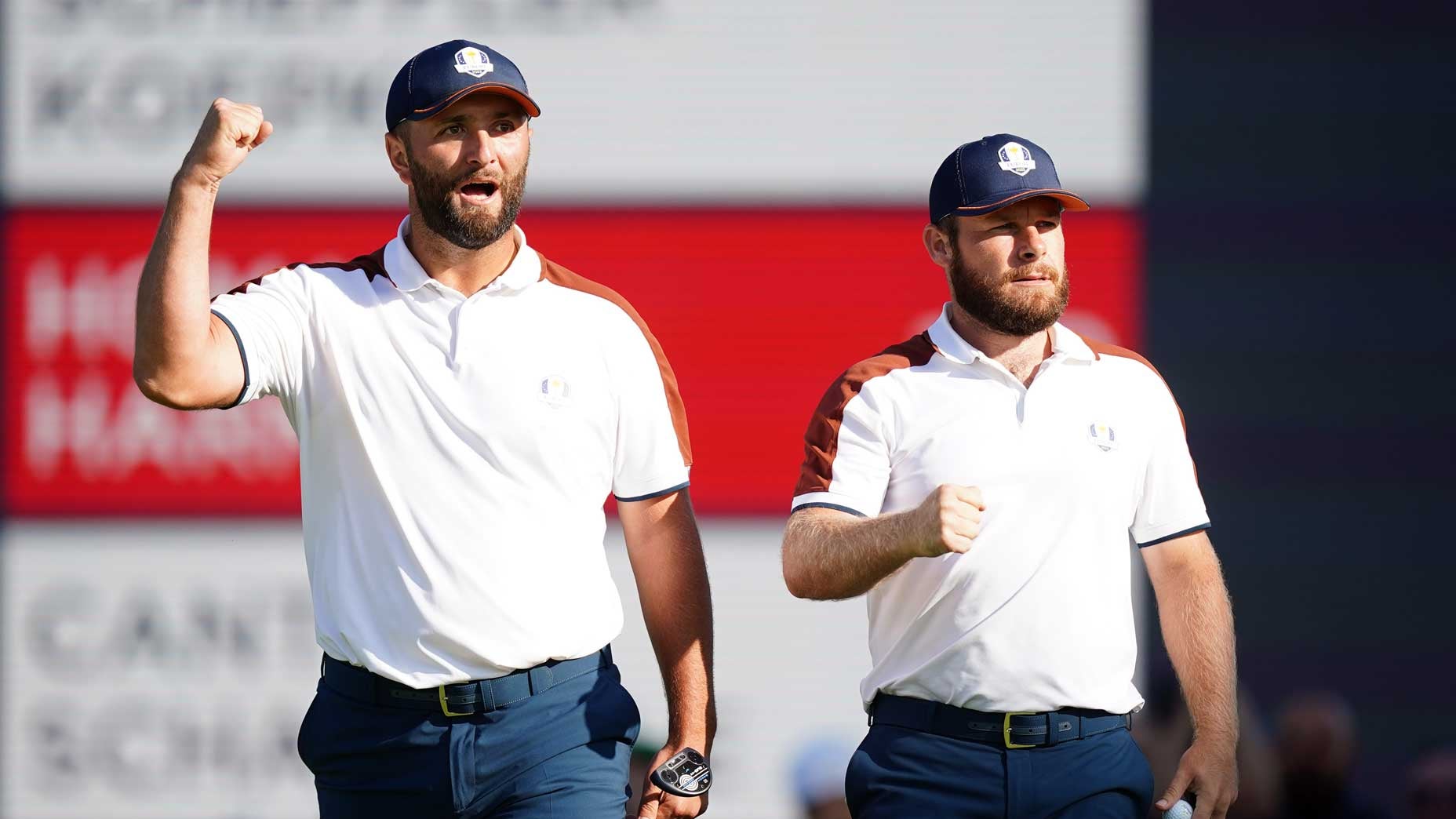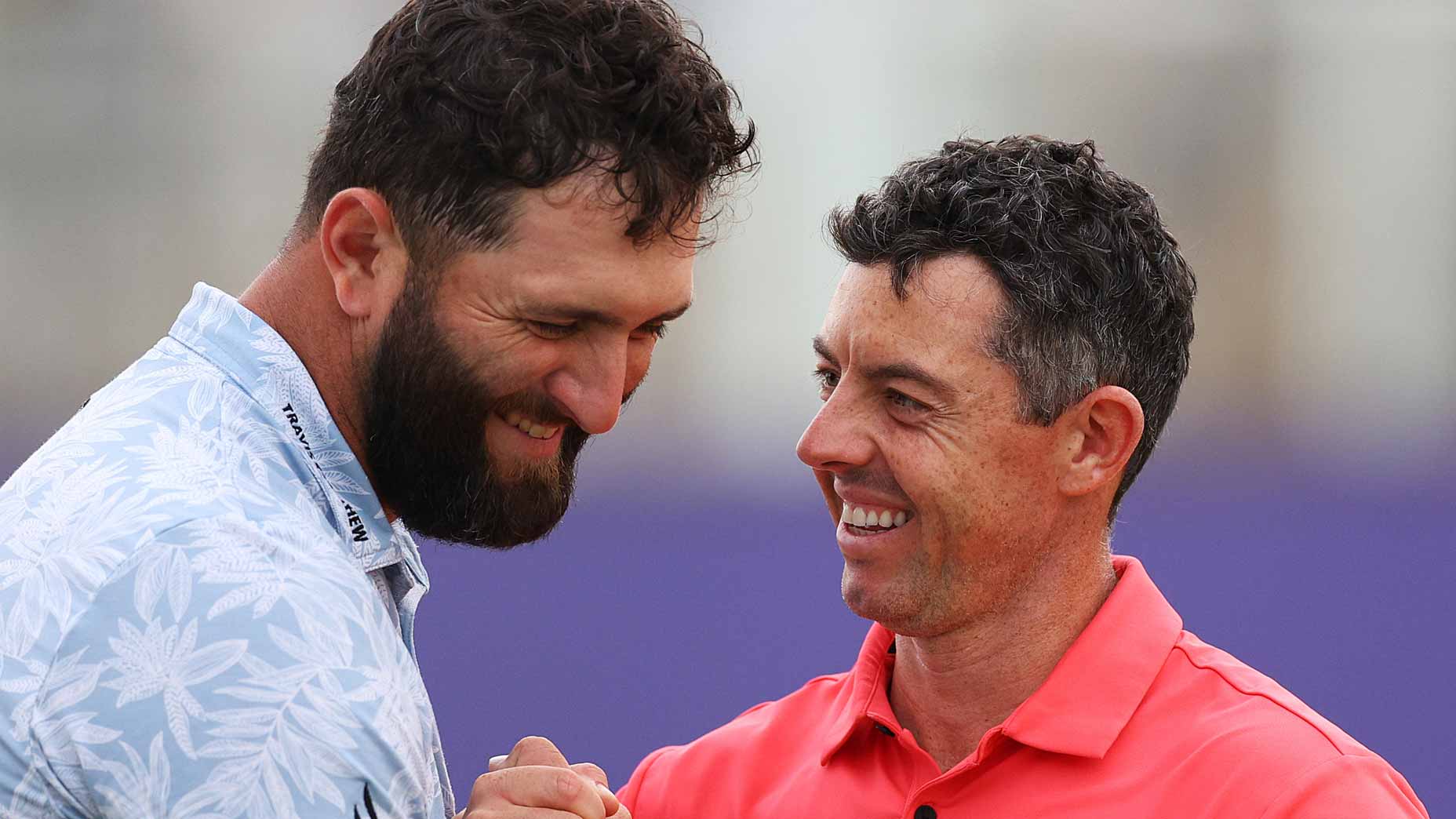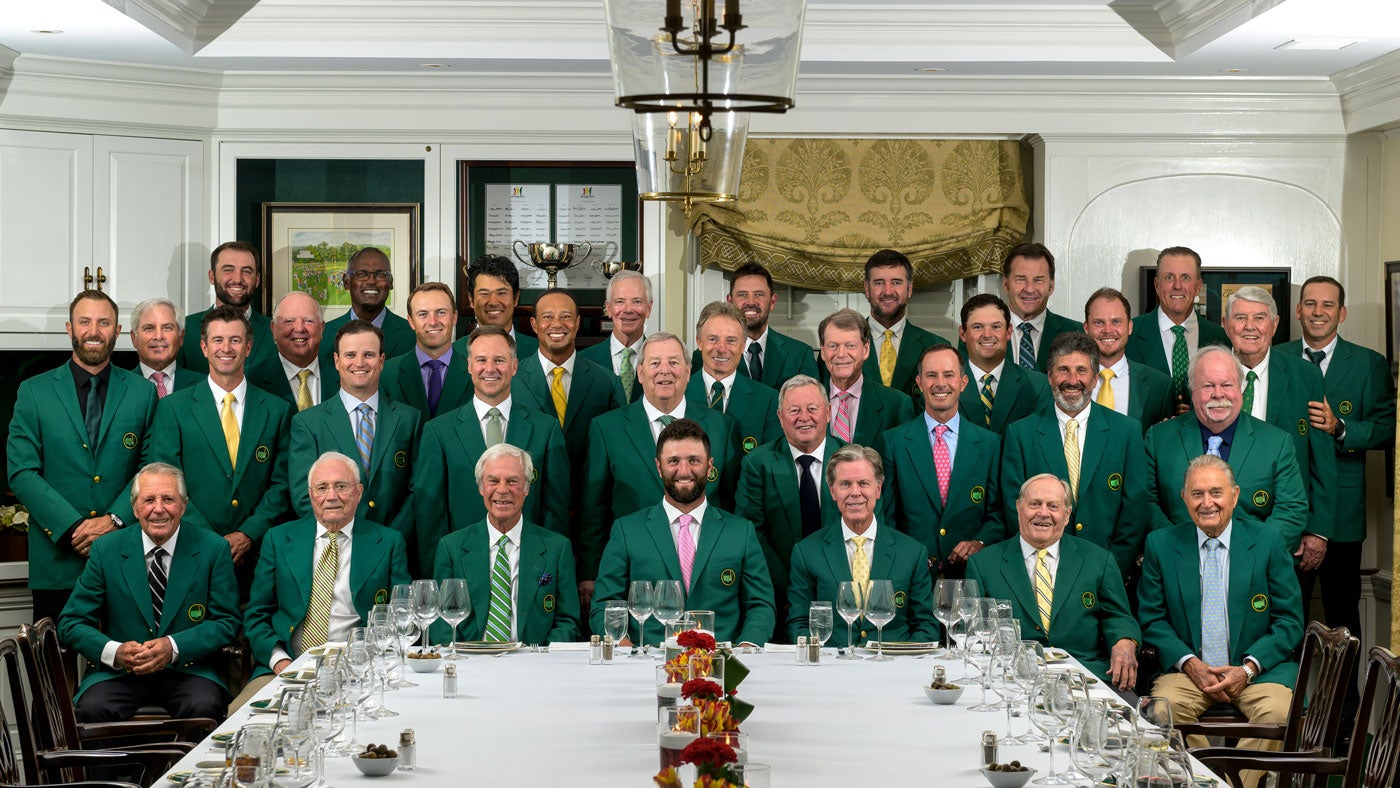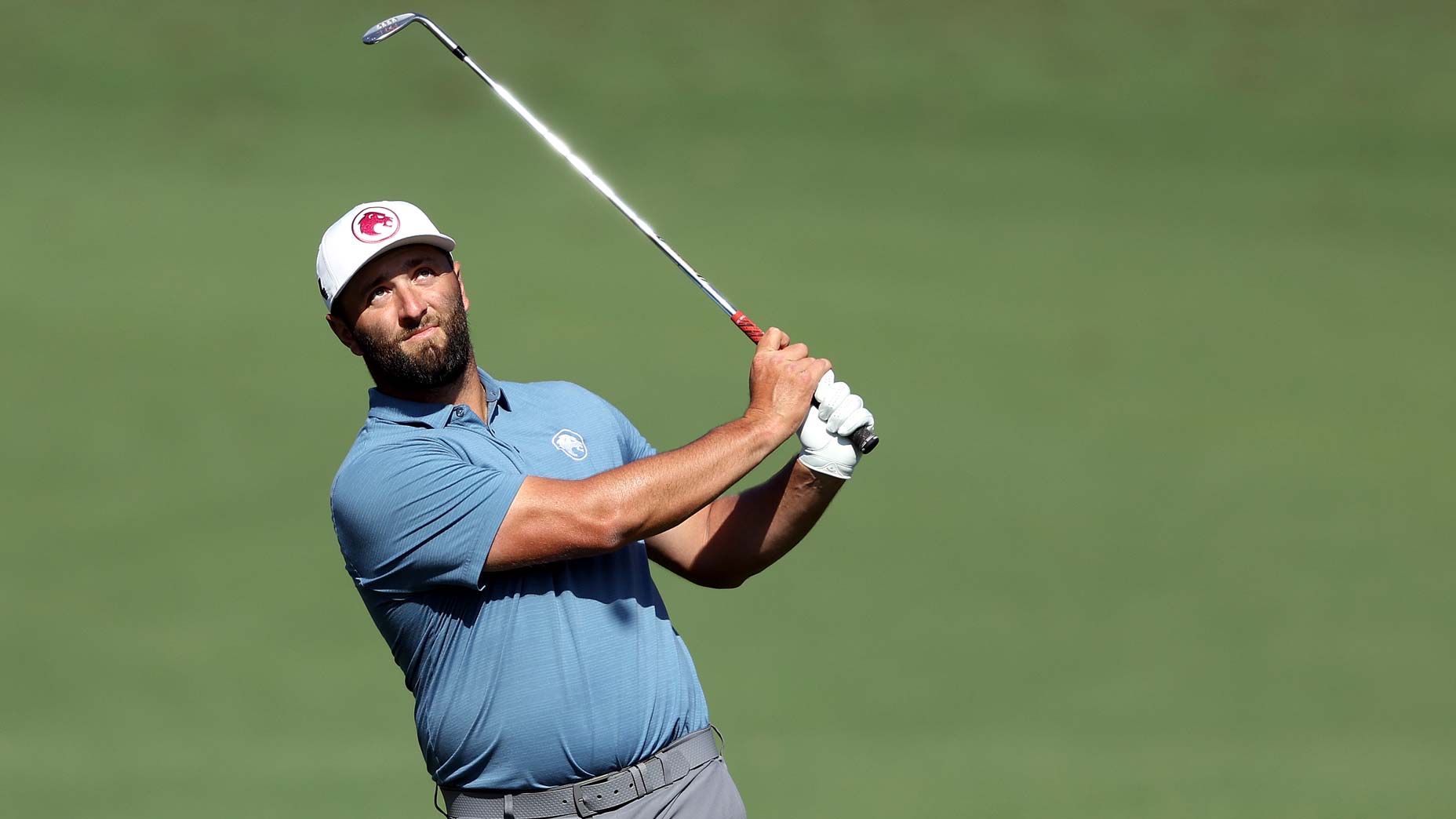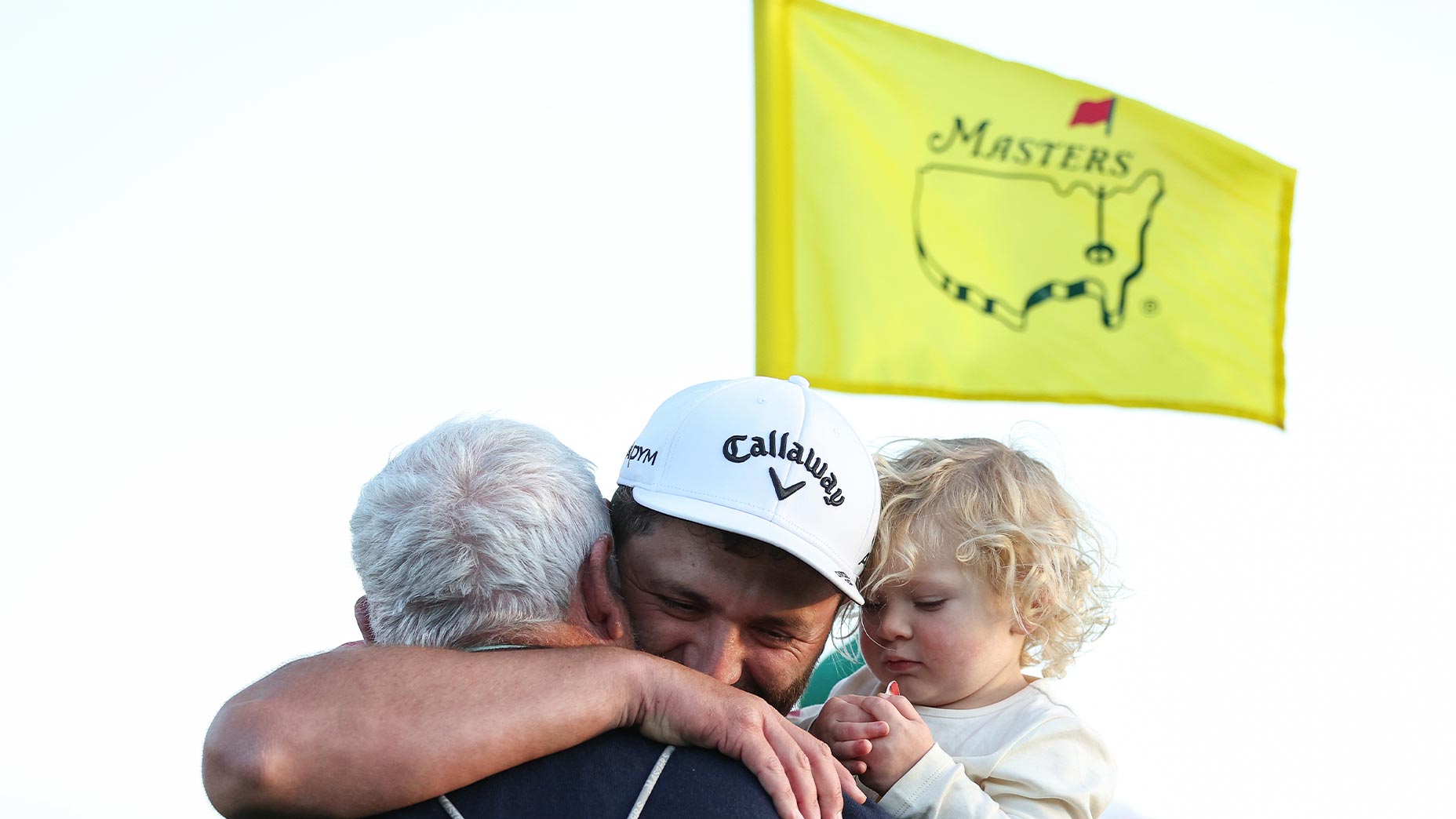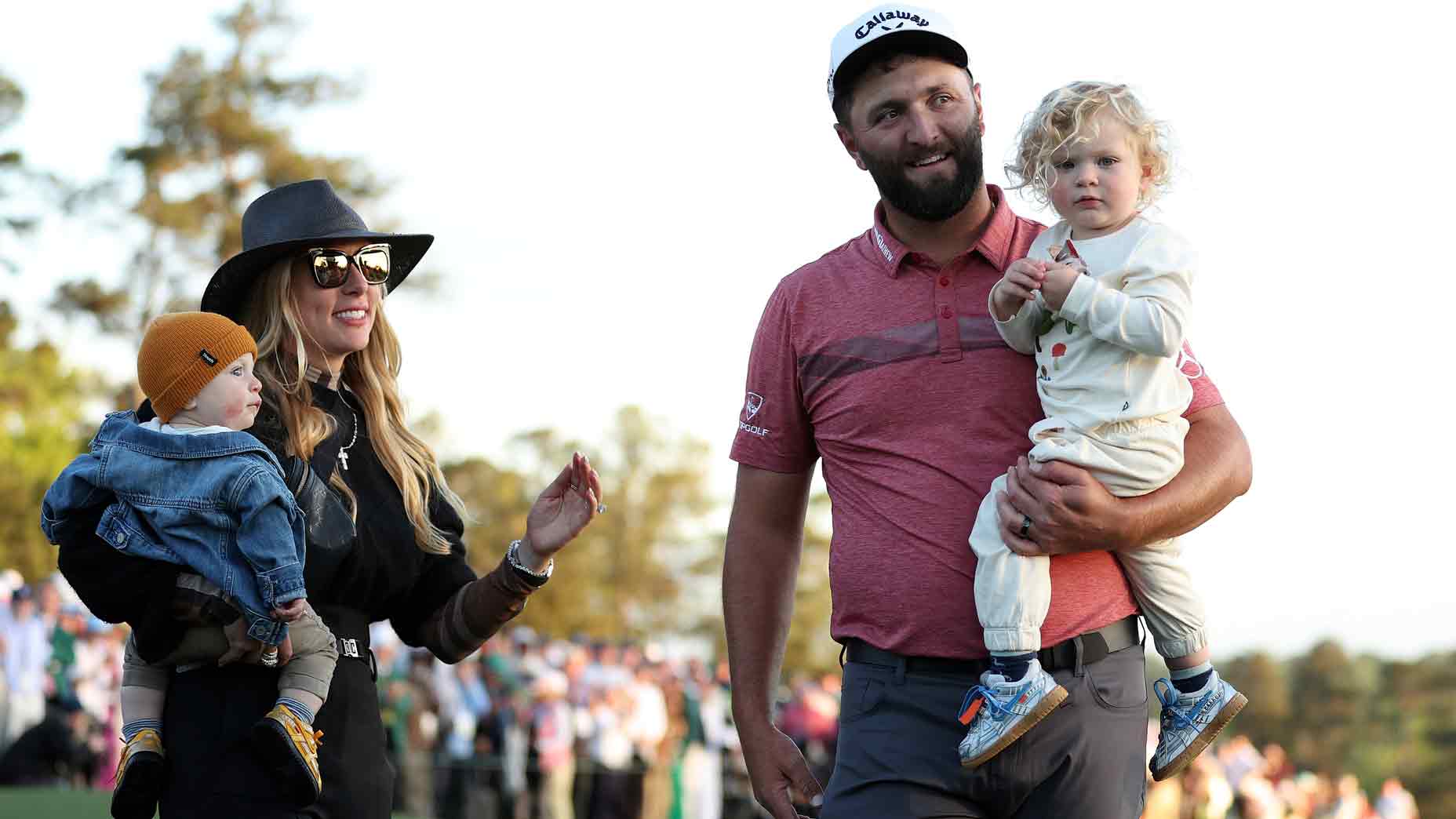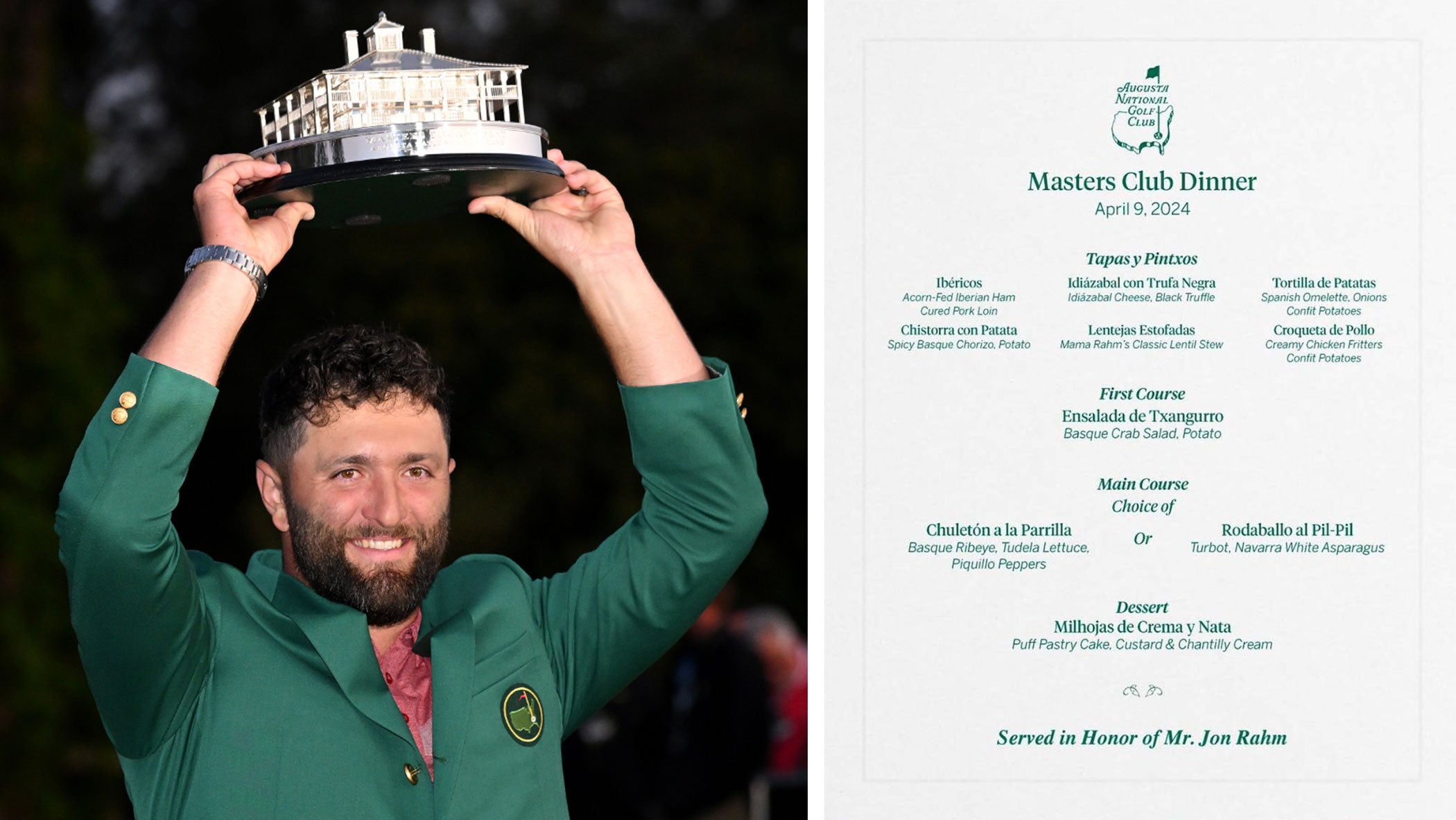One moment from Jon Rahm proved he isn’t like the rest of us

Jon Rahm vaulted himself into contention on Saturday at the Open Championship.
Getty Images
HOYLAKE, England — How did Jon Rahm look on Saturday at the Open Championship?
Not at all like you’d expect.
Rahm arrived at the par-5 18th riding one of the best rounds in the 150-year history of Royal Liverpool. He’d made seven birdies and not a single bogey. He was charging through the field, back from the brink of irrelevance and suddenly clinging to a glimmer of hope that the year’s final major was still within his grasp.
Now he stood on the 18th green with the chance to close the round the right way: with a birdie to move to 6 under, planting himself firmly within striking distance. He surveyed the putt for a long while, staring behind it in a deep crouch. Finally he stepped to the ball and made his stroke.
The birdie fell. The crowd erupted. Rahm fist-pumped.
He’d just shot 63, the lowest score ever in an Open at Royal Liverpool. “The best round I’ve played at a links course ever,” he said later.
But as he stood just off the putting surface, his most evident emotion wasn’t elation or euphoria. It was relief.
Just off the 18th, Rahm pulled his hat off his head, pressing his hands gently through his hair. He sucked deep gulps of air into his lungs and released them in heavy sighs. He smiled only long enough for his caddie, Adam Hayes, to see. He had just shot one of the rounds of his life, but if he looked excited, it was that he hadn’t screwed it up.
Later, when asked about it, he laughed.
“I don’t know how to say it exactly. It feels really, really good,” he said. “But we practice so hard, and a lot of us expect certain things…”
As he said that last part, his voice trailed off for a beat. To the listener, the implied meaning was obvious:
This is awesome, but it’s exactly what I expected.
“It gets to a point where you visualize it in your head,” he said. “What you see is supposed to happen. Like if I do this properly, I’m going to flight it here, maybe do this, or that.”
As Rahm explained, he wasn’t overjoyed because he wasn’t surprised. His incredible, record-breaking Open Championship round is the way he expects he’ll play every time he tees it up.
On Saturday, it just so happened that he’d actually done it.
“It doesn’t happen often where you see those shots come out the way they’re supposed to — and you put them in the spots you’re supposed to,” he said.
Rahm is, of course, not an idiot. He knows he can’t always shoot 63. Some days the shots don’t go the way they’re supposed to; sometimes the breaks don’t go your way. But he also knew for a while on Saturday that he hadn’t missed a single shot, and that suddenly became an expectation of its own.
You see, there’s a strange thing that happens when you realize 63 is in the cards: suddenly 63 is the worst you want to shoot.
“You see everything the way it’s supposed to happen unfold,” Rahm said, pausing again.
“It’s very unusual.”
Unusual on a few levels. For one, maybe a dozen people alive will have an experience like Rahm’s Open Saturday, and likely none of them will have it happen during the third round of a major. For another, Rahm hasn’t had many moments like this in his own highly successful major career. (“To be fair, I look frustrated very often, so…” he said with a chuckle.)
But unusual mostly because failure is an inherent part of the experience of the sport; one of the few universal truths shared between those who play at the Open Championship and those who play five-hour rounds on Friday afternoons at their local muni. Failure is a painful teacher. Failure is a powerful motivator. Failure is what keeps you coming back.
Perfection, on the other hand, is impossible, unreachable, unknowable. It is the ultimate pursuit of every golfer. It is also the ultimate fool’s errand — a waste of expectation.
For a moment at the Open Championship, Jon Rahm had a taste of perfection. But what makes him different isn’t that he found it.
It’s that he’d happily give it back.
“I’d rather win three majors and never shoot 63,” he said. “I hope that answers your question.”

